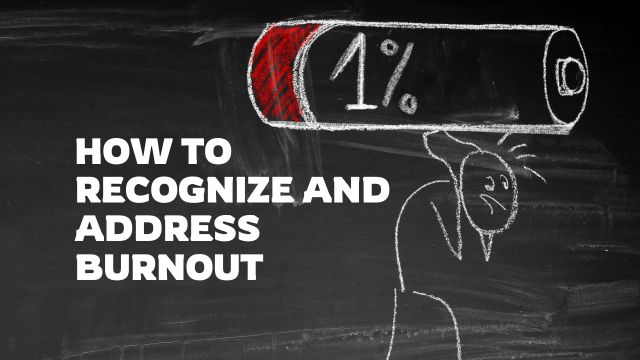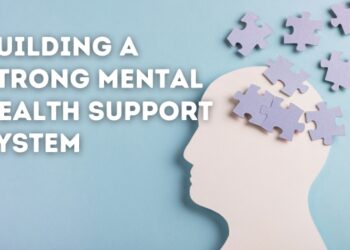In today’s fast-paced work environment, burnout is a common but often overlooked issue. It’s more than just feeling tired—burnout is a state of physical, emotional, and mental exhaustion caused by prolonged stress. It can affect your productivity, well-being, and overall quality of life. Recognizing the signs early and taking proactive steps to address burnout is essential for maintaining both your professional and personal health. This article will help you identify the warning signs of burnout and provide actionable strategies to overcome it.
Understanding Burnout: What Is It?
Burnout is a condition that develops after long-term involvement in emotionally demanding situations. It doesn’t happen overnight—it builds up slowly over time, making it harder to notice until it becomes overwhelming. According to the World Health Organization (WHO), burnout is characterized by three main dimensions:
- Energy depletion or exhaustion: Feeling mentally, physically, or emotionally drained.
- Increased mental distance from your job: Developing a negative or cynical attitude toward your work.
- Reduced professional efficacy: Feeling incompetent, ineffective, or unmotivated.
Early Warning Signs of Burnout
Burnout manifests in various ways, and the symptoms can differ from person to person. However, some common early warning signs include:
1. Chronic Fatigue
If you’re constantly tired, even after getting a full night’s sleep, it may be more than physical exhaustion. Chronic fatigue is a key indicator of burnout and suggests that your body and mind are struggling to keep up with the demands placed on them.
2. Lack of Motivation
When you lose interest in tasks that once excited you or feel no sense of accomplishment, it’s a strong signal of burnout. Your motivation levels drop, and even simple tasks may feel overwhelming.
3. Irritability and Mood Swings
Burnout can make you more irritable and prone to emotional outbursts. Small frustrations may lead to disproportionate reactions, and your mood swings may become more frequent and intense.
4. Difficulty Concentrating
One of the first cognitive signs of burnout is a lack of focus. You may find yourself making mistakes or struggling to concentrate, even on tasks that were once routine.
5. Physical Symptoms
Burnout isn’t just mental; it can have real physical effects. Headaches, digestive issues, muscle tension, and insomnia are all common physical symptoms of burnout.
6. Isolation
When overwhelmed, you may start withdrawing from social interactions, avoiding colleagues, friends, and even family. This isolation can further exacerbate the negative feelings associated with burnout.
Causes of Burnout
Burnout often stems from a combination of work-related and personal factors. Understanding these causes can help you prevent burnout before it escalates.
1. Excessive Workload
Having too much work and not enough time to complete it can lead to chronic stress and exhaustion. When you constantly feel like you’re playing catch-up, burnout becomes almost inevitable.
2. Lack of Control
Feeling powerless at work—whether it’s an inability to make decisions, lack of control over deadlines, or unclear expectations—can contribute to burnout.
3. Work-Life Imbalance
When work takes over your life, leaving little time for relaxation, hobbies, or family, you can quickly become overwhelmed. The inability to disconnect from work is a major contributor to burnout.
4. Unclear Job Expectations
If you’re unsure of your role or feel you lack support from your supervisors, this ambiguity can create constant stress.
5. Lack of Social Support
Having a poor or toxic work environment, without meaningful relationships or support, can make dealing with workplace stress much harder.
How to Address Burnout
If you’re already experiencing burnout, it’s crucial to take steps to recover before it worsens. Here are some strategies for addressing burnout:
1. Recognize the Problem
The first step is acknowledging that you’re burned out. Don’t ignore the signs or dismiss them as temporary. Burnout is a serious condition that requires attention.
2. Take Breaks
Regular breaks during the workday can help prevent burnout. Stepping away from your tasks allows your mind to rest and recharge. Consider taking short walks, meditating, or practicing deep breathing exercises to reset.
3. Set Boundaries
Learning to say “no” is critical in managing burnout. Set clear boundaries around your work hours and personal time. Avoid checking emails or working during off-hours whenever possible.
4. Delegate or Ask for Help
Don’t be afraid to delegate tasks or ask for support from your colleagues. If your workload is unmanageable, communicate with your supervisor to find solutions.
5. Reevaluate Your Goals
Take a step back and reassess your long-term goals. If your current job or role isn’t aligned with your personal and professional goals, it may be time to consider a change.
6. Reconnect with Loved Ones
Reaching out to friends, family, or a trusted colleague can help alleviate the feelings of isolation associated with burnout. Social support is critical for both preventing and addressing burnout.
7. Seek Professional Help
In some cases, burnout may require professional intervention. Speaking to a therapist or counselor can help you develop coping strategies and manage stress more effectively.
Preventing Burnout
While addressing burnout is important, it’s equally essential to take steps to prevent it in the first place. Here are a few tips for avoiding burnout:
- Prioritize Self-Care: Make time for activities that bring you joy and relaxation, whether it’s exercise, hobbies, or spending time with loved ones.
- Practice Mindfulness: Incorporating mindfulness techniques like meditation or deep breathing into your routine can help you stay present and manage stress more effectively.
- Create a Healthy Work-Life Balance: Ensure that you’re not overworking and that you’re spending enough time on personal interests and relationships outside of work.
- Stay Organized: Time management and organizational skills can help reduce feelings of being overwhelmed. Break tasks down into smaller steps and tackle them one at a time.
Conclusion
Burnout is a serious issue that can affect every aspect of your life if left unchecked. Recognizing the early signs, understanding the root causes, and taking steps to address burnout can prevent it from derailing your career and well-being. Prioritize your mental and physical health, and remember that seeking help is a sign of strength, not weakness.







